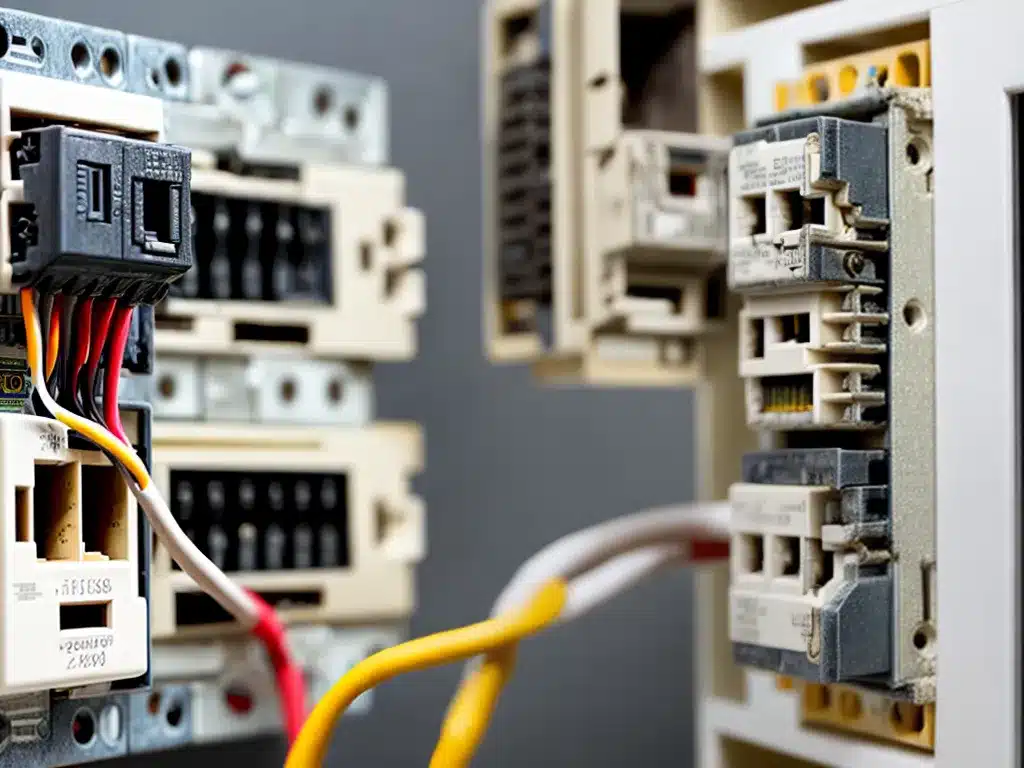 Outdated Electrical Codes Endanger Renters” />
Outdated Electrical Codes Endanger Renters” />
Many renters may not realize that outdated electrical codes in older rental properties can pose serious safety hazards. As a renter, I feel it’s important to understand the risks of outdated electrical systems and how to identify potential problems.
How Electrical Codes Have Evolved Over Time
Electrical codes establish the minimum safety standards for electrical wiring and devices in homes and buildings. These codes are part of the overall building codes adopted by states and local jurisdictions. Electrical codes have become more stringent over time as new risks have been identified and safer technologies have been developed.
For example, the early National Electrical Code (NEC) first published in 1897 focused mainly on preventing fire hazards from electrical installations. But modern NEC editions address a wider range of safety issues including electrocution, shock, and arc flash hazards. They also cover technical advances like ground-fault circuit interrupters (GFCIs) and arc-fault circuit interrupters (AFCIs) that provide greater protection.
So newer homes built to more recent NEC editions will generally have safer electrical systems than older constructions built to outdated codes.
How Renters Are Put at Risk by Outdated Electrical Systems
Many renters live in older buildings that pre-date recent upgrades to electrical codes and safety standards. Landlords are often under no obligation to proactively upgrade electrical systems in older properties. So renters can be faced with electrical risks including:
-
Faulty or damaged wiring that can cause fires, shocks or electrocution. Old wiring that has deteriorated over time poses a serious risk.
-
Lack of GFCI protection against shocks in kitchens, bathrooms and other areas. GFCIs shut off power when a current leak is detected.
-
Lack of AFCI protection against electrical arcing that can ignite fires. AFCIs shut off power when dangerous arcing occurs.
-
Overloaded circuits from outdated wiring that can’t handle modern electric demands. This can cause fires or trips.
-
Ungrounded receptacles that don’t provide protection from shocks and electrocution. Modern codes require receptacle grounding.
These kinds of hazards are unfortunately quite common in older rental units across the country. Without upgrades, renters occupy these units at their own peril.
Warning Signs to Watch Out For
As a renter, it’s worthwhile to be alert to any signs of potential electrical dangers. Here are some warning signs to keep an eye out for:
-
Odd smells or noises from outlets, switches or appliances that could indicate faulty wiring issues. Listen and sniff for anything unusual.
-
Circuit breakers that frequently trip or fuses that frequently blow, signaling potential overloads.
-
Flickering lights that could mean wiring problems or unsafe voltage fluctuations.
-
Outlets or switches that are warm or hot to the touch indicating potential overheating and fire risks.
-
Loose, damaged or badly corroded outlets or wiring that show outdated electrical components that need replacement.
Insist on Safety Upgrades or Move Out
If you discover any evidence of outdated electrical hazards as a renter, the safest solution is to insist that the landlord make necessary upgrades for a safer electrical system up to modern code. Point out the specific risks you’ve identified. If the landlord refuses repairs, it may necessary to move out rather than live with potentially deadly electrical dangers.
As a renter, you have a right to a residence that is compliant with safety codes and electrical standards that could save your life. Refuse to settle for outdated electrical systems that put you at undue risk as a tenant. Your safety should be a top priority.
Summary
Outdated electrical codes in older rental units continue to put renters at risk. As codes have modernized over time, old wiring and inadequate GFCI and AFCI protection can endanger tenants. Warning signs like flickering lights and hot switches indicate potentially hazardous systems in need of repair. Insist on full upgrades or move out of unsafe units for your own protection against electrocution, shocks or electrical fires. Renters have a right to safety from outdated and dangerous electrics.
